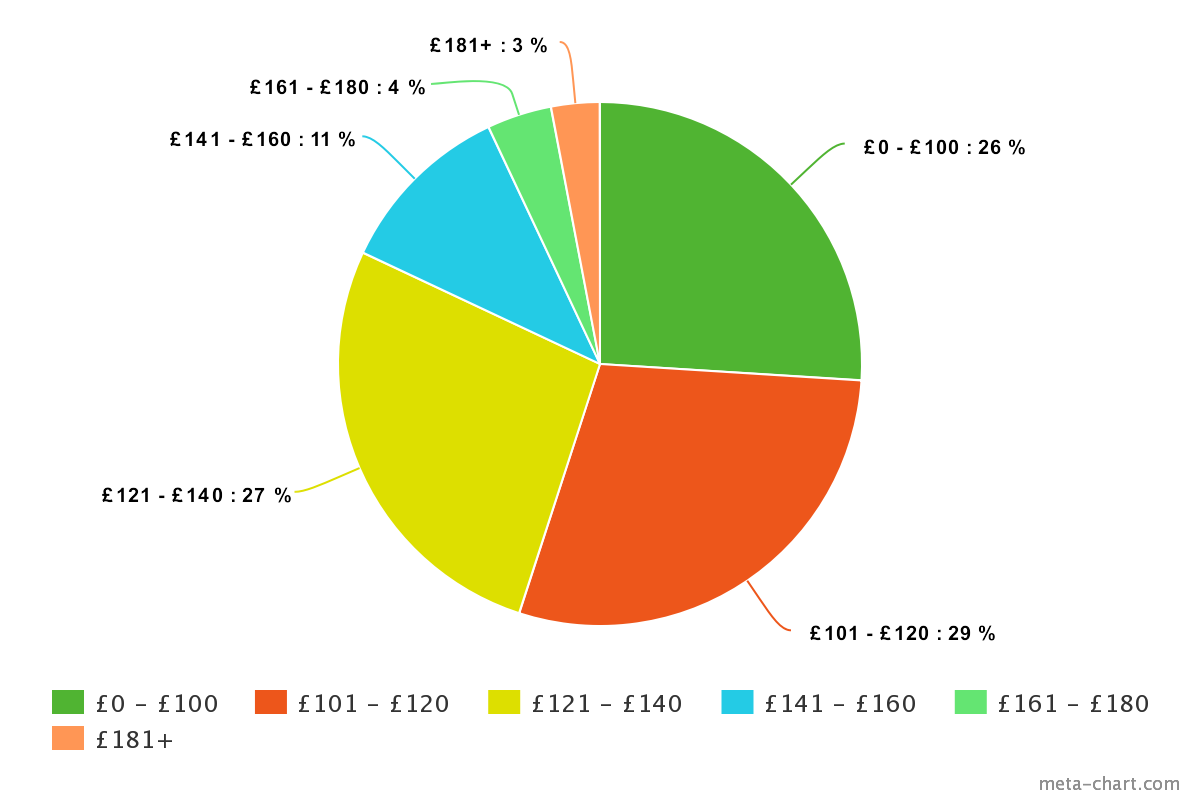Ask a supply teacher to tell you the worst part of their job and – almost unanimously – they will say that it is the pay. While every new placement can bring the joy of new colleagues, classrooms and students, it almost always brings a new rate of pay, too: there's little standardisation between counties, let alone between schools – or even departments within the same school.
Meanwhile, schools are also suffering from being charged variable rates, particularly at secondary.
In this special report, we take a look at the supply teaching pay landscape to try and bring some clarity for both schools and supply teachers.
How are most supply teachers employed?
Most supply teachers get their work through an agency, rather than being employed directly by a school.
According to the NASUWT teaching union's 2017 survey into supply teaching, nearly four-fifths (79 per cent) said they were employed through a supply agency, while around a quarter (27 per cent) were employed directly by a school and less than one in 10 (7 per cent) were employed via a local authority supply pool.
- Learn how to crack a new school as a supply teacher
How much do supply teachers earn?
Rates of pay fluctuate wildly due to a number of factors, including how agency commission charges, what schools are prepared to pay and where you are based in England and Wales.
Rates also differ depending on how long you are working in the school and the responsibilities you are given.
Typically, if you are working in a school for longer than six weeks, this will come with added responsibilities, such as planning and assessment work. For this extra level of work, you should be paid more.
Short-term rates
We asked Tes readers what they received for daily rates.
- 26 per cent earned less than £100 per day
- 29 per cent earned £101-£120
- 27 per cent earned £121-£140
- 11 per cent earned £141-$160
- 4 per cent earned £161-£180
- 3 per cent earned more than £180

This suggests around 54 per cent of teachers are earning below what one supply agency stated should be the norm.
“The ball-park daily supply rates are between £125 and £140,” said Daniel Dunn-Stuart, divisional manager for primary east at Smart Teachers.
Long-term rates
For long-term supply roles – more than six weeks – you can expect to earn more. However, as mentioned above, this does tend to include greater responsibility.
This is a general guide for long-term supply teacher daily rates:
| Main pay scale | Inner London | Outer London | London fringe | All other areas (England and Wales) |
| M1 | £147 | £137 | £123 | £117 |
| M2 | £155 | £145 | £132 | £127 |
| M3 | £163 | £154 | £143 | £137 |
| M4 | £171 | £163 | £153 | £148 |
| M5 | £184 | £178 | £165 | £159 |
| M6 | £200 | £193 | £179 | £172 |
Rates for longer-term supply should mirror the main teacher pay scales. Agency Workers' Regulations (AWR) apply after 12 consecutive weeks granting a supply teacher the same pay and conditions as someone in that role permanently.
Heather Mitchell, an employment lawyer at Browne Jacobson who specialises in the education sector, said that if a supply teacher was not paid pay parity after 12 weeks, they would be entitled to make a claim.
"The agency worker is likely to be able to bring a claim for detriment under the Agency Worker Regulations," Mitchell explained. "This would include compensation payable to the worker taking into account financial loss suffered."
Can you increase your daily rate?
One common supply query is how a teacher can increase their daily rate.
Tes forum user Pepper5 said that by taking on additional responsibilities, you should expect a higher rate.
"A teacher would get more for marking and planning on a long-term assignment. If you are willing to work in challenging academies, you can charge more," she said.
Other factors that affect whether you can negotiate more include the availability (or willingness) of other supply teachers to take the role and what subject you are teaching, Pepper5 added.
"Unless you are teaching a shortage subject, it is very difficult to get more than the going daily rate," she said.
Tes forum-user The-gaffer backed this up: "I think it's based on subject or, more specifically, the demand for that subject vs the availability of people to teach the subject."
This is evidenced by a supply teacher of maths and science who wishes to remain anonymous.
“I have received, for four weeks, £196.20 as a maximum. More normally, I’ve received £195 per day on several occasions. These are all for medium/long-term roles – about seven/eight weeks appears to be usual. There isn’t an average as such, but I would estimate that I’ve managed around £165 per possible working day, including those I’ve been unemployed on."
John added that for daily supply, the most he had been able to get was £140.
To learn more about the role of being a supply teacher and what you should expect from your agency, watch our video below on the topic.
What to ask when starting at a new agency
Pepper5 and another Tes forum user, Elizabeth, have provided some key questions to ask when starting a new agency:
- Does the agency pay PAYE? "Insist on being paid directly and not through an umbrella company," Pepper5 said.
- What CPD does the agency offer?
- Does it pay expenses, such as travel?
- Insist that the agency is AWR-compliant.
- Check what its terms are for "finders' fees".
- Are there other conditions it has that may prevent you from working at a school for a certain length of time once you have done an assignment there through the agency – this is usually six months.
- Learn how to choose the right agency
How much should schools be paying?
Rising supply costs appear to be growing problem for some schools. Michael Ferry, headteacher at St Wilfrid's Catholic School in Crawley, West Sussex, was quoted £277 per day for a science supply teacher.
"Recently, we have been looking to recruit maternity covers for English, science and design and technology," Ferry explained. "For English, I managed to get someone. We have been quoted £277 a day for a science teacher. For design and technology, we were quoted £262 a day and our business manager was able to get them down to £242."
Dr Robin Bevan, headteacher of Southend High School for Boys and patron of the Institute of School Business Leadership, added that there are numerous issues with the supply market as it stands.
"First of all, the supply teacher market shows all the creakiness of a system you operate in a free market way," he said. "There are two or three things happening in the market. Wages that supply teachers receive are pushed as low as the market will bear. It is often the case that supply teachers don’t get a fair wage compared to classroom teachers.
"Secondly, agencies are the monopoly supplier of supply teachers. Agencies push up their costs as high as the market can bear."
There are two ways in which schools can budget for supply costs, Bevan explained.
"They can take out insurance policies to cover the cost of supply teaching. This means paying a fee up front, which can be tens of thousands of pounds, but then you will know how much it will cost.
"Other schools will set aside money to cover supply teachers based on previous years’ experience. This can cost up to £50,000 or £100,000."
How schools can lower supply costs
Building strong relationships with local supply agencies is one way to keep supply costs down.
Rae Snape, headteacher of the Spinney School in Cambridge, pointed out the importance of having strong collaborative connections.
“We have a good relationship with a few supply agencies and it does help," Snape explained. "As a small primary school, it is not possible to pay to have a supply teacher on standby. We work in partnership with our two closest supply agencies. The managers from the agency come in and meet with us and because of that they know what we’re looking for.
"We’ve been very fortunate with the agencies we work with and its worked in our favour.”
James Bowen, director at the NAHT Edge union for middle leaders, echoed this: “Supply agencies play a necessary and useful role within the system. The relationship between the school and supply agency is an important one, when looking for supply teachers it’s so important to find an agency you really trust”
The Department for Education declined to comment when asked for its recommendations for what schools should pay for supply teachers and what supply teachers should be paid. However, if agencies do not comply with legislation they can be investigated by the Employment Agency Standards (EAS) Inspectorate.
Want to keep up with the latest career advice? Follow Tes Jobs on Twitter and like Tes Jobs on Facebook
* Tes Jobs' parent company is the owner of several supply agencies
